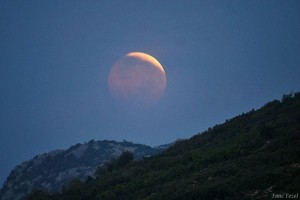-
December 21, 2010Winter Solstice 2010

- 1746 Views
- /
- 0 Comments
- /
- in Personal Experiences, Psychology, Sprituality
- /
- by admin
W
 inter Solstice is an occurrence largely shorn of importance to people in modern civilization both practically and culturally. Early agrarian cultures invested hugely into building observatories to determine the date of the solstices and equinoxes since synchronizing planting with the annual seasonal cycle might mean life or death for a people.
inter Solstice is an occurrence largely shorn of importance to people in modern civilization both practically and culturally. Early agrarian cultures invested hugely into building observatories to determine the date of the solstices and equinoxes since synchronizing planting with the annual seasonal cycle might mean life or death for a people.The spiritual significance of winter solstice for the pre-christian northern european cultures was particularly profound. The Norse mythos saw the end of the world, one in which even the gods would go down into defeat and destruction, as commencing with a winter that would not be followed by spring. A solstice that was not a solstice since the sun would not return. A cultural memory from the last ice age so recently passed in prehistory, possibly
Imagine the growing dread each fall as the days grew shorter, was the last summer already past? Imagine the relief when the solstice was verified.
Connection to big cyclical events in the natural world kept humans grounded in nature. What happened in the heavens was important to humans living on the earth. And if those whose importance was obvious, the cycle of day and night and the turn of the seasons, what about everything else? What exactly was the significance of the waxing and waning of the Moon and so on? So men howled at the full Moon, studied the patterns in the stars, pondered comets and stood in awe and fear at the spectacle of an eclipse.
But nothing much ever came of these observations except maybe a way for priests who could predict eclipses to impress the peasants and eventually the sophistry of Astrology. In time human’s knowledge of the world became more sophisticated. Reasonably functional calendars were sufficient for planting so there was no need for holy men to stand shivering in the rings of stones waiting for the dawn. Fears of the final battle of the gods was replaced by confidence in a clockwork universe.
2010. For the second time since the year 1 (the first being 1638) winter solstice, the full moon and a lunar eclipse have coincided. What does this portend? Exactly nothing and no one much noticed. Our ancient ancestors surely would have been besides themselves with fear and awe and the wonder of the natural world.
Fear and awe and wonder. What have we gained? What have we lost? Superstition may be emotionally satisfying but it is bad science and leads to serious error in the practical world. But might we be getter off if we jettisoned the superstition but cultivated the awe and wonder? And for that matter maybe we would be well served to retain some the fear too. A comet, one of those once feared celestial apparitions that have now been relegated to the routine clockwork of the universe will surly wipe out all of mankind one day if we do not prevent it.

Recent Comments